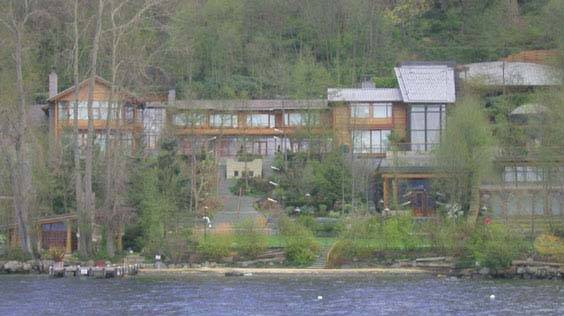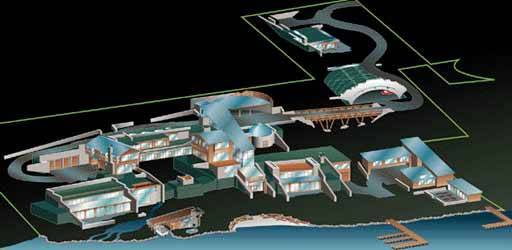
WHY AMERICANS SHOULD LOVE TOLKIEN'S LORD OF THE RINGS---WE LIVE THERE [!]
Fabius Maximus
Summary: We can all learn much from reading Lord of the Rings about the new America now emerging. A stratified society, with great and small people. Tolkien, ever the realist, shows how the small people can prosper in the 21st century — as America comes to resemble Middle Earth.
Always on the top of my reading list is the London Review of Books, with each issue explaining much about our past, present, and future. Here we have an excerpt from Jenny Turner’s brilliant essay “Reasons for Liking Tolkien” in the 15 November 2001 issue.
Depressed people report feelings of powerlessness to be an index of their condition; and just look at how power is distributed on Middle Earth. Aragorn has it, Gandalf has it, Galadriel has it, because of what they are (a king, a wizard, an elf-queen) rather than what they do. To hold power is to be good-looking: ‘great and beautiful’ (Galadriel), ‘in the flower of manhood’ (Aragorn).
There isn’t a lot of magic on Middle Earth: rabbits don’t come out of hats, no one gets turned into a stone or a poodle. Its place is taken by something more plausible-seeming and refined. Political power (being a king, a wizard, a queen) is elided with willpower, an ability to make things happen. Powerful people run faster and have stronger characters (which, as we know, is why they cannot bear the Ring). They have and make use of televisual devices (the palantírs of Orthanc and Gondor, the mirror of Galadriel), bending them to their bidding. They build sanctuaries – Rivendell, Lórien – in which they can protect the beautiful and the good. ‘An essential power of Faerië is thus the power of making immediately effective by the will the visions of “fantasy”,’ as Tolkien says in ‘On Fairy-Stories’.
In a politics like this, hobbits are in a subordinate position, always slightly left out.
- They don’t have any special powers or dispensations, unless they can cadge some from the big guys: hospitality and amulets and potions from Elrond, Galadriel, Treebeard.
- They offer themselves as pageboys, they hitch a ride on Gandalf’s horse.
- They bow deep to Théoden, Denethor, Faramir, Aragorn.
- They are ‘flotsam and jetsam’, ‘small ragtag’.
- Once or twice, they even get mistaken for orcs.
In the movie trailer Cate Blanchett murmurs some placatory nonsense about how even the smallest person can change the world, but that is the same tokenism that allows a hobbit to stab at an evil ankle. Gandalf says at one point that the Shire has a sort of magic, but it is just small-town volkischness, sentimental and slightly sinister. This is especially evident when they arm themselves with hammers and axes in ‘The Scouring of the Shire’. In the end, hobbits are small and weak and furry-footed, and Tolkien has given tallness and strength and glinting grey eyes far too much weight in his world for this not to count.
The politics of The Lord of the Rings, in short, comprises a familiar mixture of infatuation with power with an awareness of one’s own helplessness beside it. One’s best hope, really, is to suck up to the big people, in the hope they will see you all right. It’s the perennial fantasy of the powerless.
We too live in Middle Earth, a nation with great and powerful wizards who can accomplish deeds beyond the imagination of lesser folks. Celebrities who live out their hedonistic fantasies, unrestrained by our laws and moral codes. Politicians to whom we give our hearts — such as Obama, Ron Paul. Wealthy businessnessmen who rape our economy, operating above our laws.
These people own our government. Charities are determined by their priorities. Their hired hands write our laws, pass judgement in our courts. Their police suppress protests. The great Wall Street banks are engines shaping society to their design. The news media tell their narrative explaining events (as in this op-ed by suck-up expert David Brooks). The major think-tanks create stories justifying their plans for America.
American politics is little but jousts among factions of the rich. Republican presidential candidates compete to see who can tax the rich the least, shift the most of the tax burden to the middle class, and slash the largest amount of benefits to the poor. Success comes to those who most skillfully pander to their pretenses and most successfully advance their interests.
Like Bill Gates, a next-gen American prince. Here we see his version of Rivendell, built on a hillside overlooking Lake Washington in Medina, Washington. 66,000 square feet on 5.15 acres; assessed value $200 million.
For more information about inequality of wealth, income and power in America
- A sad picture of America, but important for us to understand, 3 November 2008
- Inequality in the USA, 7 January 2009
- A great, brief analysis of problem with America’s society – a model to follow when looking at other problems, 4 June 2009
- The latest figures on income inequality in the USA, 9 October 2009
- An opportunity to look in the mirror, to more clearly see America, 10 November 2009
- Graph of the decade, a hidden fracture in the American political regime, 7 March 2010
- Modern America seen in pictures. Graphs, not photos. Facts, not impressions., 13 June 2010
- A pity party for America’s rich and powerful, 8 September 2010
http://fabiusmaximus.wordpress.com/2011/12/13/31916/?source=patrick.net


